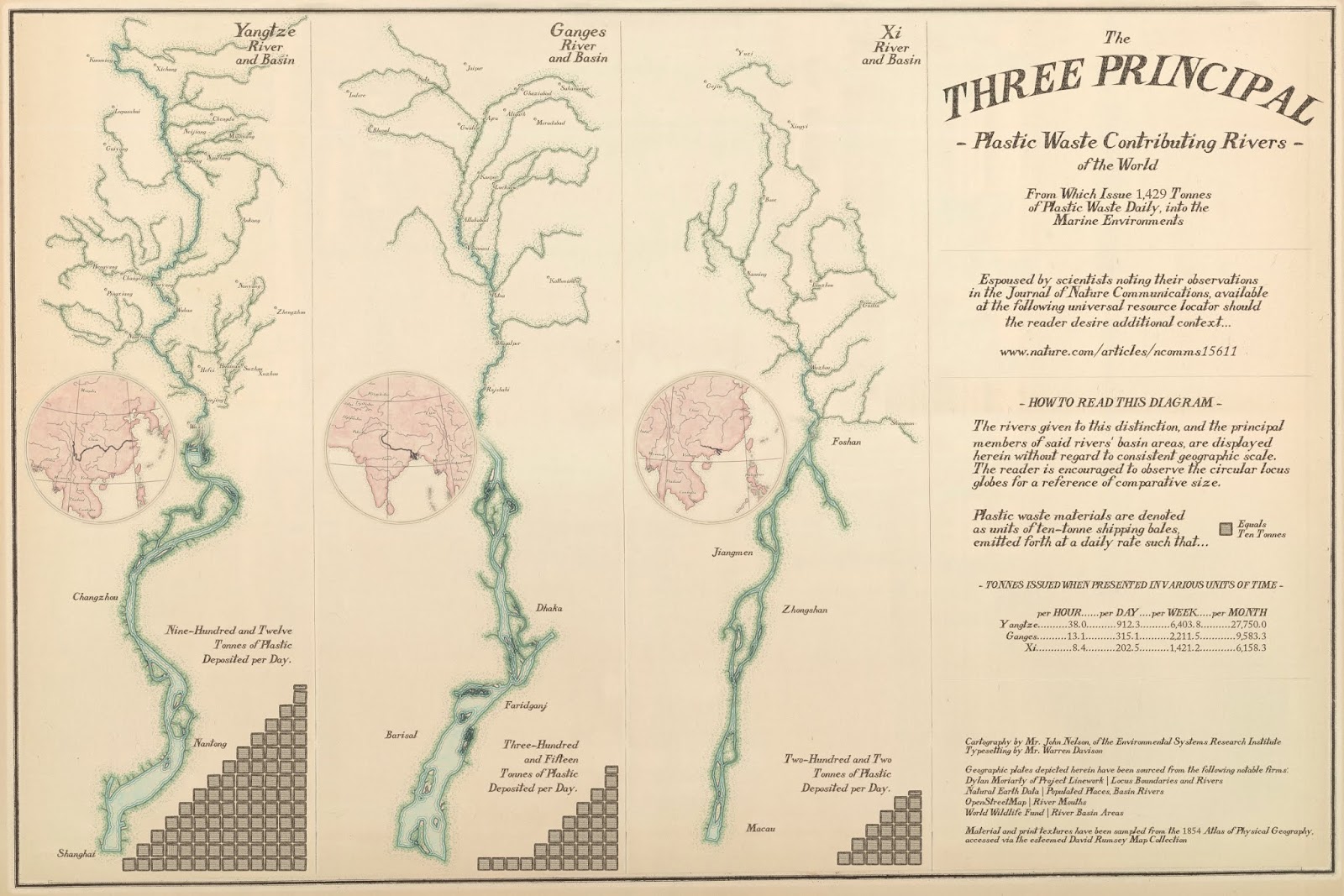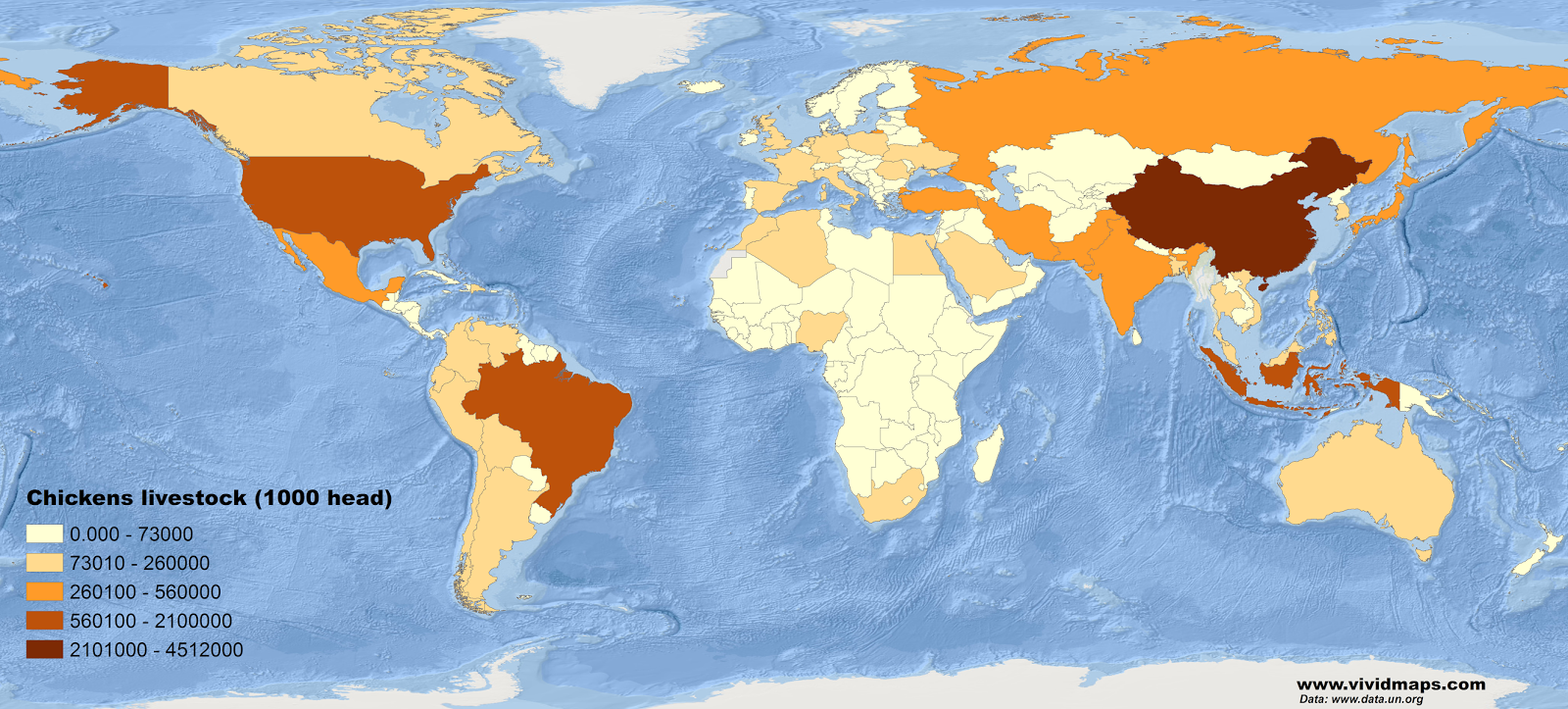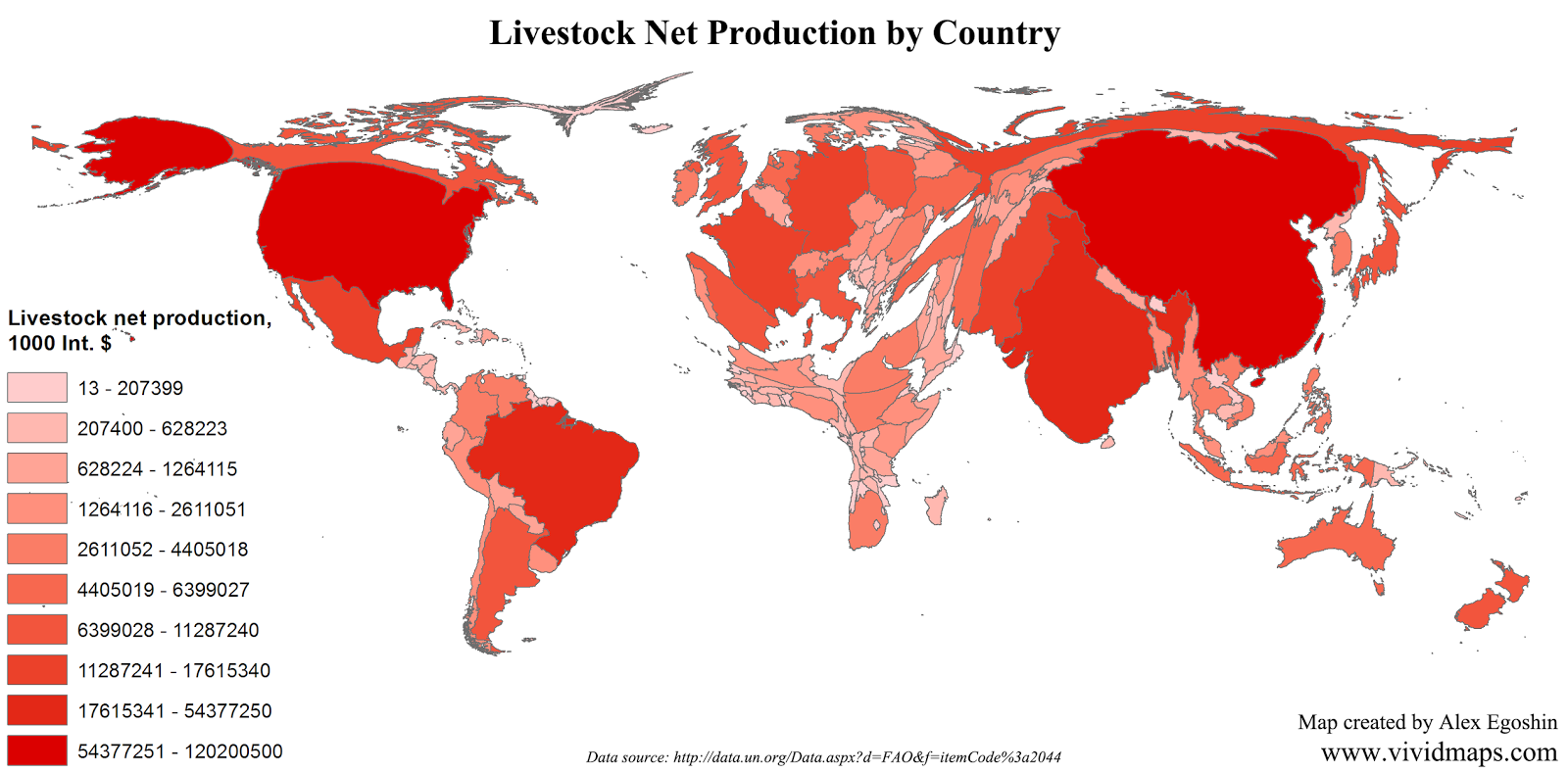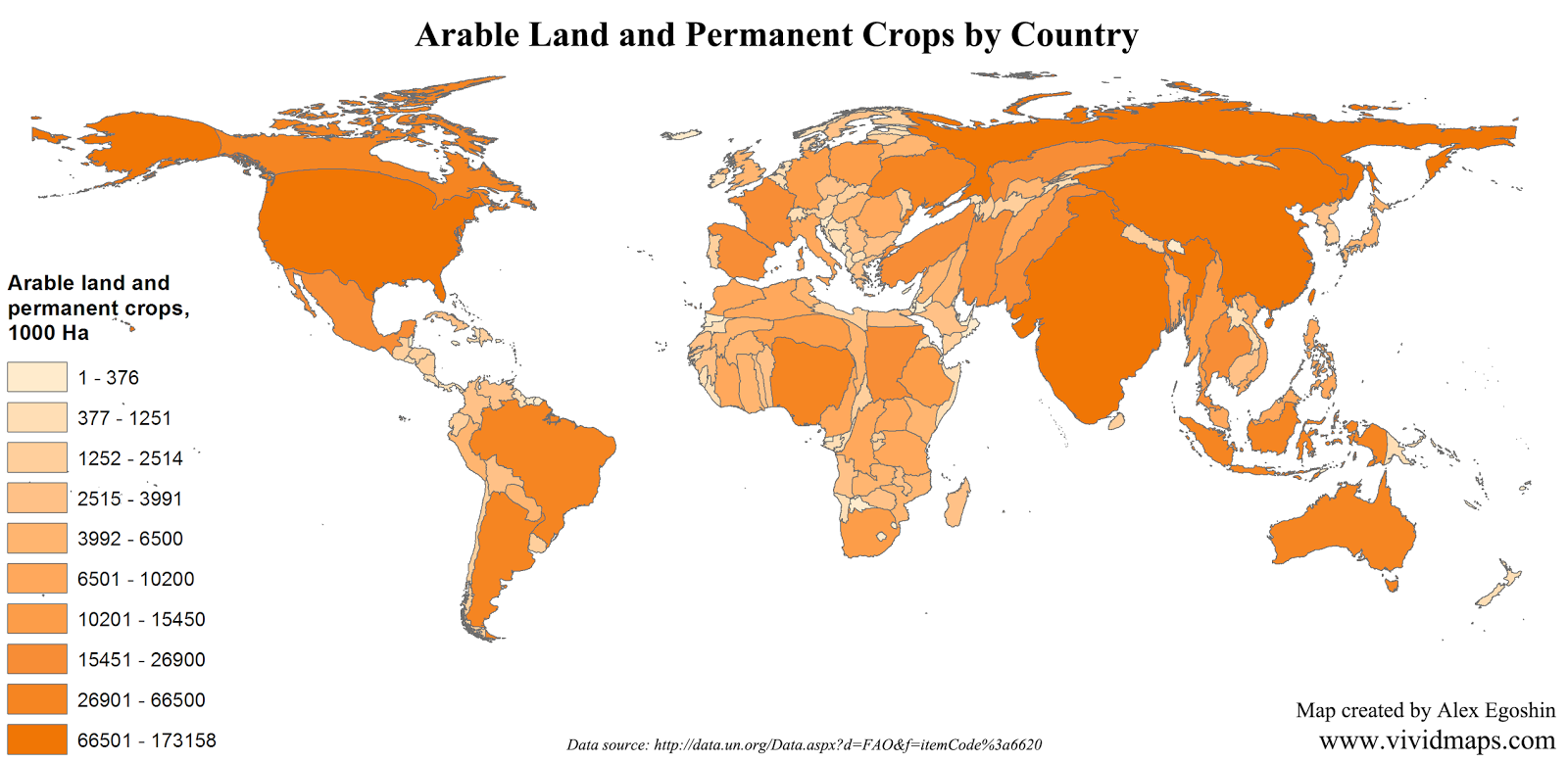Rivers of Plastic: The World’s Top 3 Waterways Polluting Our Oceans
Our planet’s oceans are choking on plastic, and rivers are the main culprits in this environmental disaster. A striking map created by adventuresinmapping.com reveals the three rivers responsible for dumping a staggering 1,429 tonnes of plastic waste into marine environments every single day. Let’s dive deeper into this issue and explore its far-reaching consequences.

The Plastic Pollution Titans
- Yangtze River (China): • Daily plastic deposit: 912 tonnes • Hourly: 38 tonnes • Monthly: 27,750 tonnes
- Ganges River (India/Bangladesh): • Daily plastic deposit: 315 tonnes • Hourly: 13 tonnes • Monthly: 9,583 tonnes
- Xi River (China): • Daily plastic deposit: 202 tonnes • Hourly: 8.4 tonnes • Monthly: 6,158 tonnes
These figures are truly alarming, but they’re just the tip of the iceberg in our global plastic crisis.
The Plastic Predicament: A Global Concern
Why should we care about plastic pollution? The answer lies in its devastating impact on our planet:
- Environmental Havoc: Plastic waste chokes marine life, damages coral reefs, and disrupts entire ecosystems. According to the United Nations Environment Programme, over 800 marine and coastal species are affected by plastic pollution through ingestion, entanglement, or habitat destruction.
- Health Hazards: Microplastics have infiltrated our food chain, with potential long-term health consequences for humans. A study published in Environmental Science & Technology found that we might be ingesting about 5 grams of plastic every week – equivalent to a credit card].
- Economic Impact: Plastic pollution costs the global economy an estimated $13 billion annually in beach cleanups, damage to fishing vessels, and losses in tourism.
The Scale of the Problem
Humanity produces a mind-boggling amount of plastic waste each year. According to a report by the OECD, global plastic waste generation more than doubled from 2000 to 2019, reaching 353 million tonnes.
The biggest contributors to this plastic tsunami? The United States, China, and countries in the European Union top the list of plastic waste generators per capita.
Turning the Tide: Solutions to Reduce Plastic Waste
While the situation seems dire, there’s hope on the horizon. Here are some promising solutions being implemented worldwide:
- Circular Economy: Many countries are adopting circular economy principles, focusing on reducing, reusing, and recycling plastics.
- Innovative Materials: Scientists are developing biodegradable alternatives to traditional plastics, such as algae-based materials.
- Policy Changes: Governments worldwide are implementing bans on single-use plastics and introducing extended producer responsibility schemes.
- Clean-up Technologies: Innovative projects like The Ocean Cleanup are developing technologies to remove plastic from our oceans and rivers.
Be Part of the Solution: 7 Tips to Reduce Plastic Waste at Home
- Say no to single-use plastics: Carry reusable shopping bags, water bottles, and coffee cups.
- Choose products with minimal packaging: Buy in bulk when possible.
- Recycle properly: Learn your local recycling guidelines and follow them diligently.
- Use natural cleaning products: Opt for plastic-free alternatives like bar soaps and shampoos.
- Shop at zero-waste stores: Support businesses that prioritize sustainable packaging.
- Avoid microbeads: Check labels and avoid products containing these tiny plastic particles.
- Spread awareness: Educate friends and family about the importance of reducing plastic waste.
The rivers highlighted in this post – the Yangtze, Ganges, and Xi – serve as stark reminders of the global plastic crisis we face. However, they also present opportunities for targeted interventions and cleanup efforts. By understanding the scope of the problem and taking action in our daily lives, we can work towards cleaner rivers, healthier oceans, and a more sustainable future for our planet.
What are your thoughts on this global issue? Share your plastic-reduction tips in the comments below!








